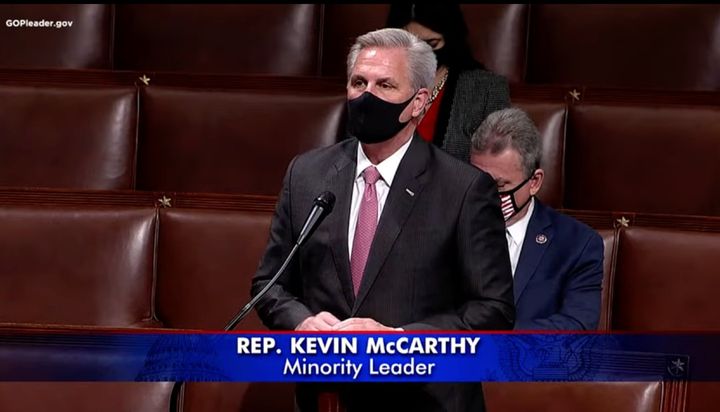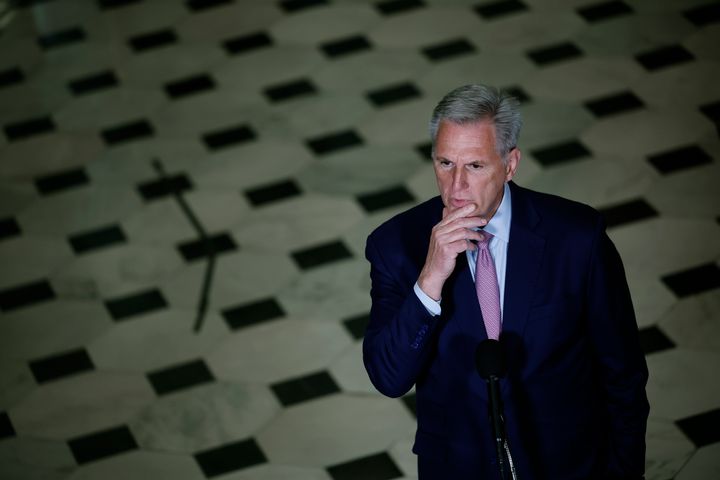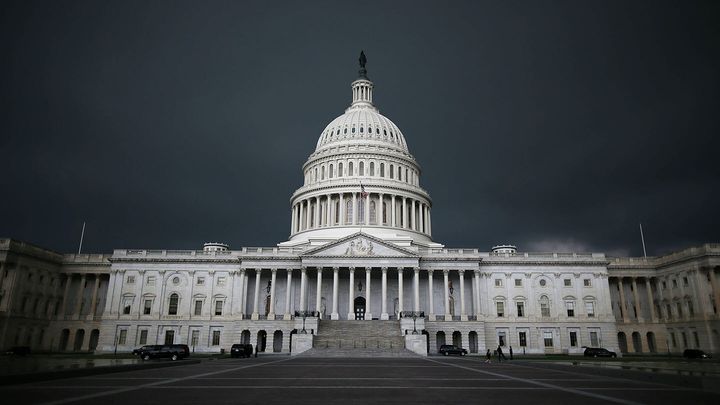Last week, House Democrats passed their signature campaign finance reform and voting access bill, H.R. 1, which among a slew of reforms would create a program allowing congressional candidates to access public funding for their campaigns. The bill heads next to a Senate hearing on March 24.
In an attempt to make H.R. 1 a political liability, the bill’s Republican opponents and their allied nonprofits have renewed a misinformation campaign, begun during the previous Congress, that misrepresents the public matching system and its funding sources.
On March 1, the largest “dark money” group tied to House Republicans, the American Action Network (AAN), says it began an ad campaign hitting House Democrats for their support of H.R. 1. The nonprofit AAN, which does not disclose its donors, was the top donor in the 2020 election cycle to the Congressional Leadership Fund (CLF), the super PAC affiliated with House Republicans, giving at least $26.4 million. AAN and CLF share the same president.
AAN announced it will run phone calls in 51 U.S. House districts and digital ads in 15 districts, targeting swing-seat members like Rep. Elaine Luria of Virginia and Tom Malinowski of New Jersey. In 2017, AAN took in over $51 million, counting $16 million from a single anonymous donor, as it campaigned in support of the Republican tax bill.
This week, Heritage Action, the advocacy arm of the conservative think tank Heritage Foundation, announced its plans to work to block H.R. 1 as part of a $10 million campaign to oppose Democratic reforms to the voting process. The Heritage Foundation does not disclose its donors, but in the past has received funding from Donors Trust, a major funder of right-wing groups like the American Legislative Exchange Council (ALEC), and other prominent right-wing family foundations like those of the Bradleys and Mercers. Heritage Action received a $500,000 donation from Charles and David Koch in 2013, according to Politico.
Heritage Action described the $10 million it plans to spend as “an initial investment.” In 43 states, Republican lawmakers have introduced over 250 bills that would restrict access to voting such as limiting vote-by-mail options and early in-person voting, according to the nonpartisan Brennan Center for Justice.
Social media graphics attacking H.R. 1 from Heritage Action display inaccurate descriptions of the funding sources for the public campaign financing option that the bill would make available to all qualifying congressional candidates. As shown by investigative watchdog group Documented, Heritage’s graphics read, “H.R. 1 would spend taxpayer dollars to fund politicians’ reelections campaigns” and “H.R. 1 would also give taxpayer money to political campaigns.”
According to the text of the bill, the exclusive source of funding for the voluntary public financing system would be a new “Freedom From Influence Fund,” which would be funded primarily through a small surcharge on criminal or civil penalties and settlements from corporations, corporate officers, or individuals. As an example of the type of surcharge involved, Brennan Center analysts wrote, “In 2019, Facebook was ordered to pay approximately $5 billion to the federal government for mishandling users’ personal information. Under H.R.1, this fine would provide around $137.5 million for the small donor matching program.” The other possible sources of funding are penalties assessed against candidates who violate the public matching program rules, funds remitted from past participants who did not spend all their allocated public funds, and contributions earned before candidates opted into the program that do not comply with the program’s restrictions.
House Minority Leader Kevin McCarthy (R-Ca.) echoed the conservative groups’ misleading claim about H.R. 1’s matching program using “taxpayer” dollars in his March 2 floor speech railing against the bill. “Let’s say someone donates $200 to a preferred candidate. Under H.R. 1, taxpayers must now chip in an extra $1,200,” McCarthy said. The inaccurate description of taxpayer money involved was repeated in a second video released by the Republican Leader.

Under the public financing option in H.R. 1, participating congressional candidates who gather $50,000 in small donations from at least 1,000 individuals qualify for further campaign contributions to be matched at a 6-1 ratio with public funds, while agreeing to disclosure requirements and voluntary donation limits. Similar matching-fund programs have been adopted by a number of states and municipalities to curb the influence of large campaign donors and increase the diversity of candidates while responding to the concerns of a wider pool of voters.
The nonpartisan government ethics group Campaign Legal Center (CLC) released a fact check memo last month countering false claims about H.R. 1, in response to a misinformation email sent by a group named ACT for America, which the Southern Poverty Law Center has designated an anti-Muslim hate group. In addition to saying that no taxpayer revenue would be included in the program, and would therefore not be used for any candidate salaries, as claimed by Heritage, CLC’s memo underscores that the program would not permit salary payments to sitting members of Congress.
The text of H.R. 1 as introduced, in Section 5207, already stated that all payments for the public financing program must come from the Freedom From Influence Fund. To further counter misinformation attacks on the public financing options, an amendment was added on the House floor that outright bans taxpayer revenue from being deposited in the Freedom From Influence Fund. The one-line amendment, introduced by Luria, was included in a package of amendments that was approved by a House vote of 221 to 207 on March 2.

Additional misinformation about the bill allowing members of Congress to collect a mid-six-figure salary was debunked last month by PolitiFact and previously in 2019 by FactCheck.org.
Still, recent Republican members of Congress are continuing to promote misinformation. Former Rep. Mark Walker of North Carolina, who did not run for re-election last year to run in the 2022 Republican Senate primary, tweeted out a misleading video he put out in 2019 that says, “Tired of seeing campaign ads? Well, if enacted, #HR1 will take your money and give it to politicians so they can run TV ads.”
One digital ad from AAN reads, “Liberals want public money for their campaigns,” including for “luxury hotels,” but does not differentiate between taxpayer revenue, which is explicitly prohibited by the bill, and the corporate penalties that would fund the public financing option.
A mid-February poll by Data for Progress and Vote Save America found that 68% of all likely voters support H.R. 1, including 57% of Republicans and 68% of Independent voters, along with up to 78% of Democrats.



